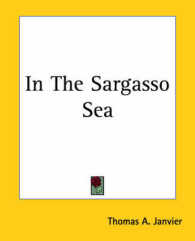Full Description
Truth and Norms: Normative Alethic Pluralism and Evaluative Disagreements engages three philosophical topics and the relationships among them. Filippo Ferrari first contributes to the debate on the nature and normative significance of disagreement, especially in relation to evaluative judgements such as judgements about basic taste, refined aesthetics, and moral matters. Second, he addresses the issue of epistemic normativity, focusing in particular on the normative function(s) that truth exerts on judgements. Third, he contributes to the debate on truth—more specifically, which account of the nature of truth best accommodates the norms relating judgements and truth. This book develops and defends a novel pluralistic picture of the normativity of truth: normative alethic pluralism (NAP). At the core of NAP is the idea that truth exerts different normative functions in relation to different areas of inquiry. Ferrari argues that this picture of the normativity of truth offers the best explanation of the variable normative significance that disagreement exhibits in relation to different subject matters—from a rather shallow normative impact in the case of disagreement about taste, to a normatively more substantive significance in relation to moral judgements. Last, Ferrari defends the view that NAP does not require a commitment to truth pluralism, since it is fully compatible with a somewhat refined version of minimalism about truth.
Contents
List of Captions
Acknowledgments
Introduction
Chapter 1: Alethic Minimalism
Chapter 2: Truth and the Semantics of Evaluative Judgements
Chapter 3: Disagreement and its Normative Significance
Chapter 4: A Comparative Analysis of Disagreement in (some) Evaluative Domains
Chapter 5: Dimensions of the Normativity of Truth
Chapter 6: Pluralism, Minimalism and mNAP
Chapter 7: Alethic Minimalism and Normative Extrinsicism
Conclusion
Bibliography
Index
About the Author








